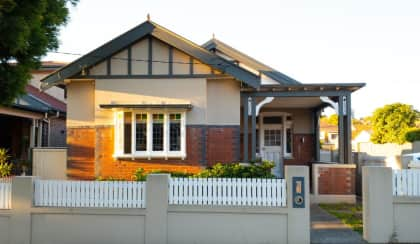August building approvals stray further from housing target
With building approvals dropping over the month, industry leaders are urging policymakers to implement decisive measures to boost housing supply.

Recent data from the Australian Bureau of Statistics (ABS) has revealed that the total number of dwellings approved fell 6.1 per cent over the month of August to 13,991, after an 11 per cent rise in July of this year.
While detached house approvals rose by 0.6 per cent compared to July and registered as a two-year high, chief economist at Master Builders Australia, Shane Garrett, said this result was tempered by a 17.5 per cent reduction in higher density home building approvals during August.
Commenting on this decline in higher density home building approvals, Garrett highlighted that the “volume of approvals is now even lower than it was a year ago”.
“Over the past year, a total of 166,230 new homes have been approved across Australia. If we remain stuck at this rate of new homes building over the lifetime of the National Housing Accord, only about 832,000 new homes will get delivered,” he said.
“This would represent a shortfall of over 365,000 homes relative to the 1.2 million new home target set by all levels of government for the Accord.”
Chief economist at the Housing Industry Association, Tim Reardon, offered a more positive viewpoint on the ABS data, and emphasised that house approvals in the three months to August 2024 were 11.2 per cent higher compared to the same time last year.
He added that “the steady increase in detached house approvals is offsetting a low volume of multi-unit approvals”, with total dwelling approvals in the three months to August 2024 registering 5 per cent higher than this time last year.
Nonetheless, Reardon highlighted that “rising tax imposts on foreign investors and rising regulatory costs are compounding the challenges for apartment builders”.
“It has been almost 11 months since the last increase in the cash rate. Stable interest rate settings have provided the certainty needed to see a rise in home build confidence,” Reardon said.
“This is complemented by stabilising price growth for building materials, a return to normal build times, strong housing demand and low unemployment.”
Within the capital cities, Reardon noted that “house approvals in Perth and Brisbane are faring much better than in Sydney and Melbourne”.
This trend is evident across the broader states, with Western Australia and Queensland’s housing approvals in the three months to August 2024 seeing the two greatest increases of 47.5 per cent and 19.7 per cent respectively over the last 12 months.
South Australia and Victoria’s housing approvals were observed to have grown by 10 per cent and 8.4 per cent respectively over the same period, with Reardon adding that confidence in Melbourne’s new home market has been “adversely impacted” by new property taxation policies.
House approvals declined across the remaining states and territories, with the ACT seeing the greatest drop (18.6 per cent) followed by Tasmania (17.8 per cent), NSW (7.6 per cent) and the Northern Territory (6.8 per cent).
As the government’s national target of 1.2 million new homes approaches, Reardon cautioned that “recent discussions on negative gearing and capital gains tax arrangements for residential property will undermine confidence in new home building”.
“The government’s focus should be on lowering the taxes, regulatory costs and excessive charges that make up as much as 50 per cent of the final cost of a house and land package,” he said.
Chief executive at Master Builders of Australia, Denita Wawn, emphasised her belief that “high density housing is crucial to ending the housing crisis and easing economic pressures for all Australians”.
“If we are to bring about a quick end to the housing crisis, we need a strong and consistent supply of high-density housing to the market,” Wawn said.
“With higher density building approvals lower now than a year ago, today’s data reinforces the need for serious action on inflation to encourage new home ownership and more private investors into the market to generate urgently needed new homes,” she concluded.
